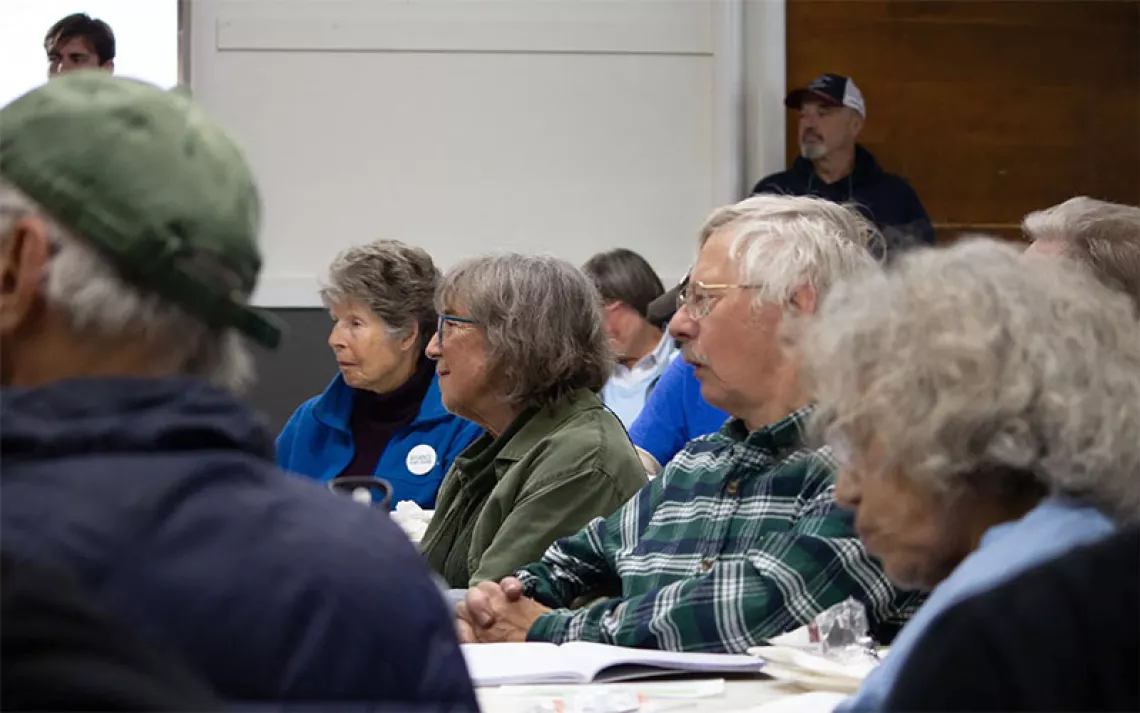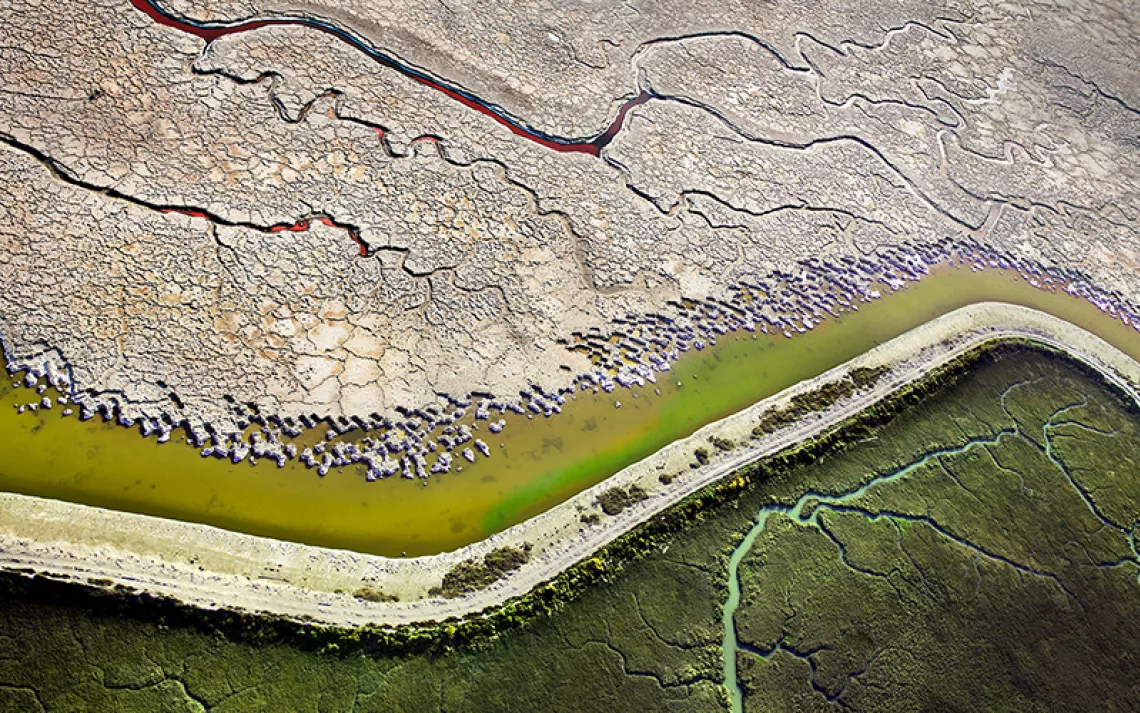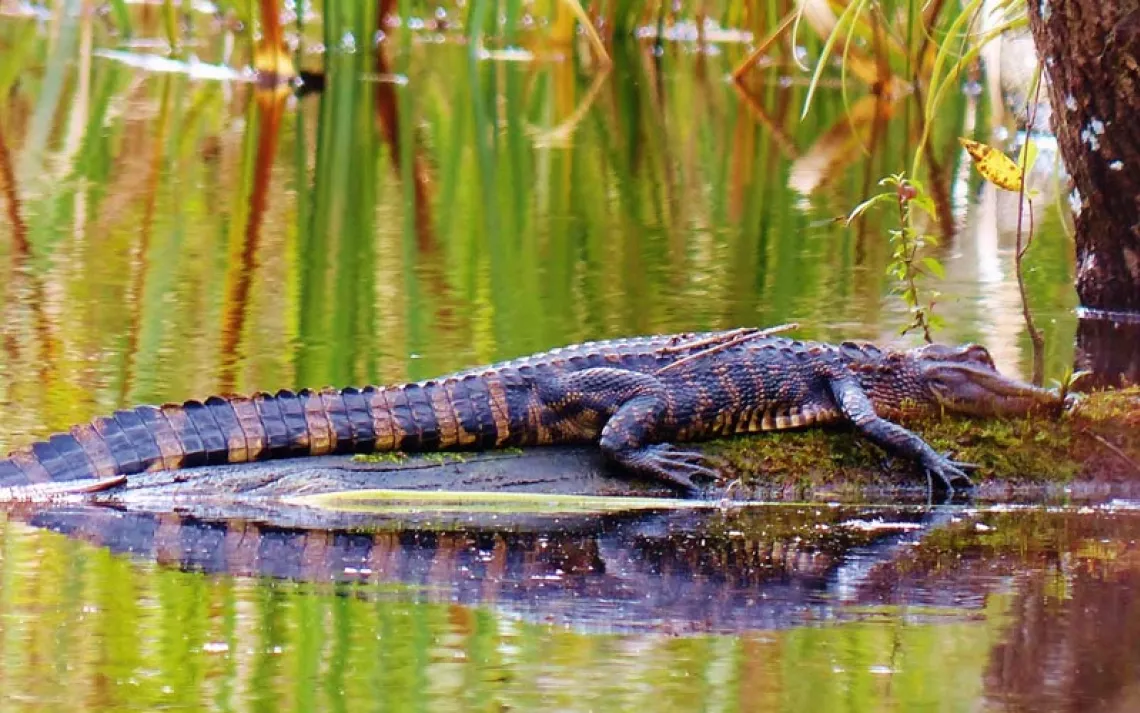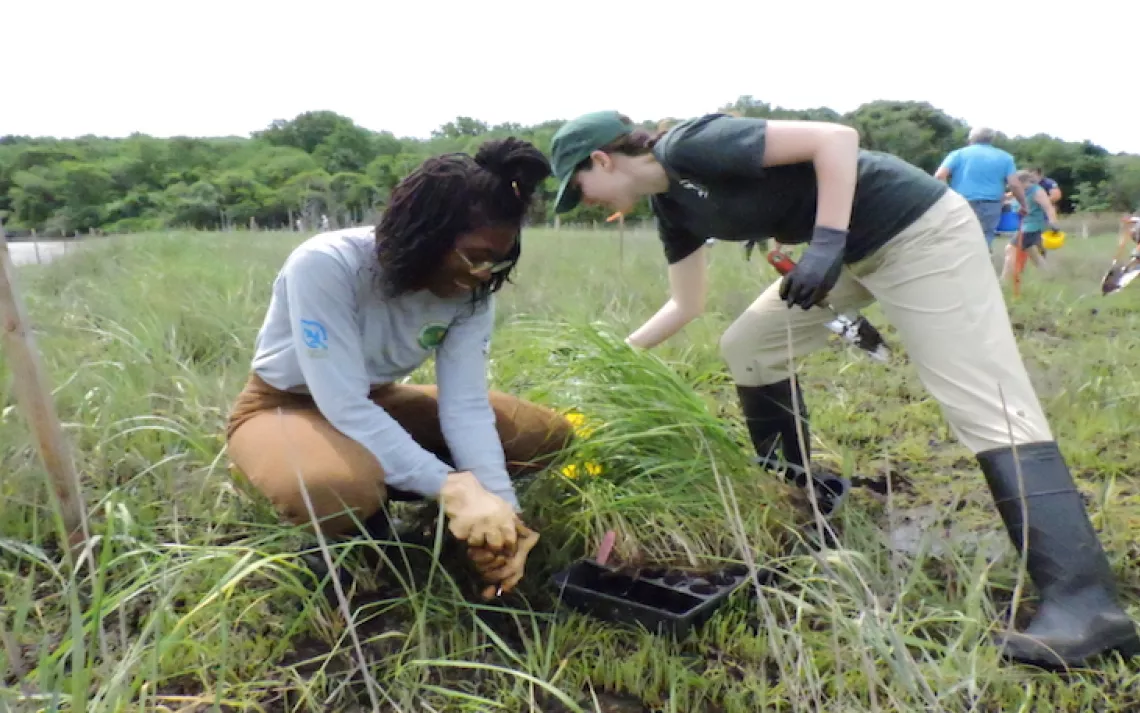Undefined Waters
Words from my wet land
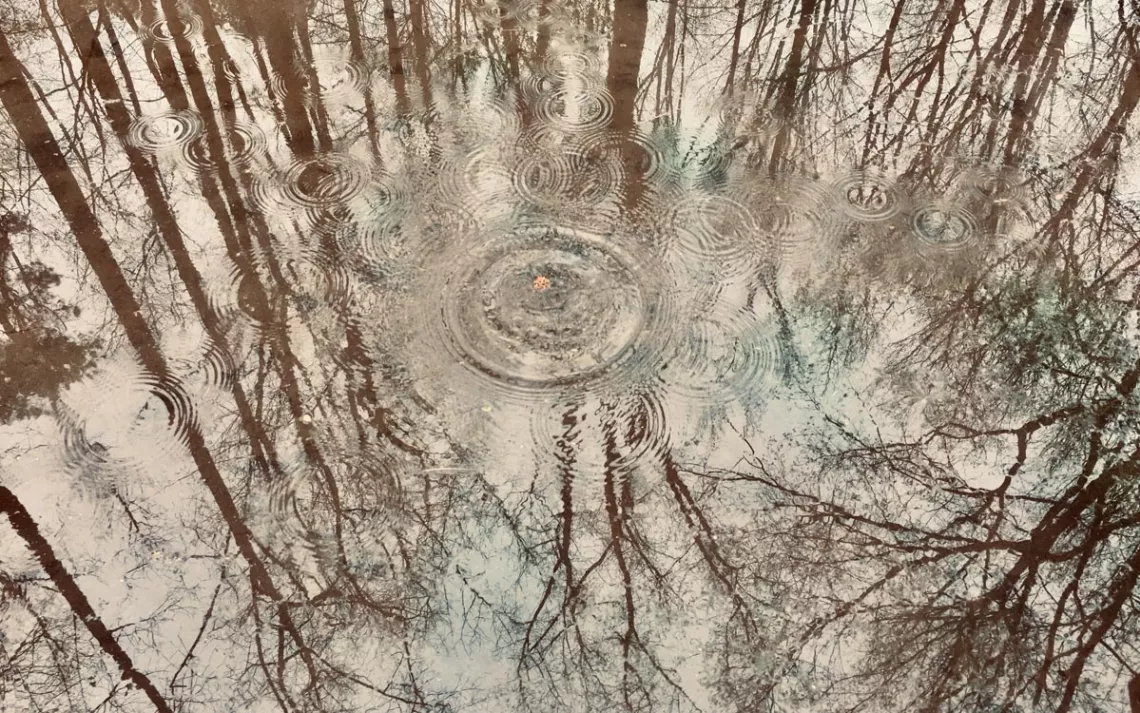
Photograph by Holly Haworth
After I read that Trump and his administration have removed protections for wetlands and streams across the country, I go out and walk my wet land.
My wet land is a seven-acre scrap of farmland—blueberry orchard and fruit trees—and woods in the Georgia Piedmont. It edges the road and slopes down to a low-lying place where several ephemeral streams gather and pool; at the boundary, a small creek runs. It’s rained all night, heavy winter rains. My boots squish into the spongy ground. My wet land is positively sopping. It’s lands like these that will be grabbed when regulations are removed, even though one news story I read spun the original Clean Water Rule as a “power grab” by the federal government. The phrase conjures the famous tape of the president saying what he grabs. No wonder the wet places of the country are unsafe too.
Orbs of water cling to the bud-clustered tips of branches. Here is a semipermanent puddle filled with the muck of old oak leaves, the watery tannic and coppery. There may have once been a name for these puddles, but I don’t know one. There may be—there are probably—frogs spending the winter at the bottom, below the freeze line. Drops from the branches above sporadically land on the water’s surface: bloop. Each begins a series of concentric circles that expand outward in rings. Many other puddles stand, shimmery, full of things going soft. The air smells pungent. In the puddle, I see a subtle plume coming to the glassy surface, its pressure pushing up a small roil: a spring.
Here an ephemeral stream no thicker than my thigh flows toward the creek. If you listen, it makes the sweetest liquidy sound, smooth against oozy mud. I see where deer have crossed, their hooves pressed into prints.
Here on my wet land, this stream that flows after rain gushes finally into a pool. There stands a congregation of sedges, a word you don’t hear too often. Not often enough.
And is there a word for a pool like this? Is it a “bog,” a “swag,” a “quagmire,” a “marsh,” a “lowland,” a “muskrat house,” a “swamp,” a “vernal pond,” a “pocosin?” These are all possible wetland terms I glean from the book Home Ground, a kind of dictionary of geographical formations that has as many words for watery places as it does for dry ones. I know this is not a pokelogan (“the stagnant backwaters of lakes and rivers”) or a bogan (“a marshy backwater”), but it may be a lek, “a particular area of land or water to which various species congregate, year after year, to enact mating rituals.” It’s fertile ground, breeding ground.
And my slender stream may more properly be called a runnel or a rill, while my spring is really more of a seep. We have lost the flow of these words on the tongue, though any of them might describe the kinds of places from which Trump and his administration have ripped away protections—partly to please golf-course developers, it’s said. (In Florida, the rollback leaves 6 million acres of wetlands unprotected.)
I say the words in sensuous hushes here on my so-wet land, my wet land just one of so many that can now be mined, drilled, filled, dumped into, turned into a golf course. "Sod": a flat word in the mouth, nearly dead.
So much is about language; the Trump administration rolled back protections for water by narrowing the definition of "waters" under the Clean Water Act, so that wetlands and ephemeral streams aren’t waters anymore, legally. As we lose our words for water, the lords of language also narrow our definition of water. Water becomes undefined, and we fail to name it. What follows the silencing of our watery language is the sound of bulldozers. What flows after is muddied and toxic waters.

Sign up to receive Sierra News & Views
Get articles like this one sent directly to your inbox weekly.
With this action you affirm you want to receive Sierra Club communications and may vote on policy designated by the Sierra Club Board.
In the arid West, seasonal streams—arroyos—make up a huge percentage of the landscape’s actual water, a water more real than anything, when you hear it running after a summer storm. In Arizona, for example, as much as 94 percent of seasonal waterways are now not waters, lost to language even as they continue to wash their paths through the dust sure as ever with each precious rain, the source of the desert’s bloom.
There’s a fine mist falling now. The rill gushes into the marsh (I’ll call it that, for now). The marsh ploshes into the creek, whose flow is heavy, spilling over the slabs of rock in splashy waterfalls, all downstream.
The rain that’s falling: I will drink it, years from now, after it’s purified by rock layers, drains into the aquifer, which runs, invisible, below the earth. You will drink from your wetlands, wherever you are, from whatever aquifer they seep and flow into, whatever creeks and rivers into which they trickle and rush and spill. All eventually downstream.
You will drink them. Bring that cup now to your mouth like it’s the cup of salvation, like it holds the life force, because it is and it does, filled to the brim by wetlands. Now that you’ve whet your whistle, say the words now with me that I have written on my notebook pages, the ink bleeding into splotches as my letters scrawled the paper. These words from the smeary pages of my wetland journal: seep, runnel, rill, stream, creek, marsh, oozy, squish, spring, spongy, boggy, swamp, swag, splash, rush, gush. Let them run on the tongue, that we might not lose them; know that to whet is also to sharpen.
 The Magazine of The Sierra Club
The Magazine of The Sierra Club
